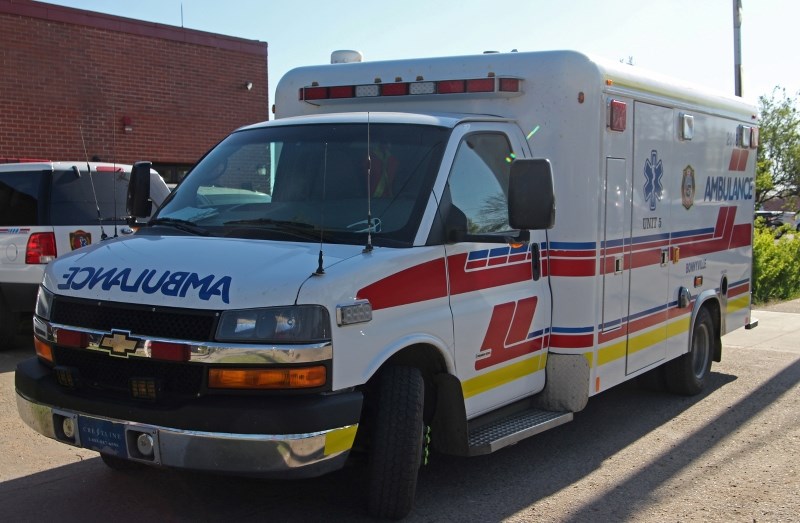A two-year fight with Alberta Health Service over the insufficient funding for local ambulance services continues, as municipal officials are set to meet with AHS representatives this week.
A two-year fight with Alberta Health Service over the insufficient funding for local ambulance services continues, as municipal officials are set to meet with AHS representatives this week.
The Bonnyville Regional Fire Authority, which operates the ambulance service, has been hard at work lobbying the province since the early summer. The two sides met in mid-2015 and again in December, with Bonnyville representatives focused on trying to maintain a quality ambulance service and AHS officials more interested in the cost.
"It is all about the money," said Bonnyville Mayor Gene Sobolewski.
"In the (December) meeting, I was appalled by some of the line of questioning I was getting because it was more dealing with mathematics and economics versus the ability to have a service response in accordance to the same type of response you get with a full-time fire department."
Sobolewski and others who attended the meeting said AHS officials indicated they were going to have some internal discussions before carrying the conversation any further. To this point there has been no indication that AHS is willing to up funding for the local service.
As it stands, the BRFA is contracted to run three ambulances - one advanced life support unit and two basic life support units. While three ambulances should be enough to cover the region, the situation becomes complicated when you factor in the central communications centre out of Edmonton, which controls the dispatch.
"It is quite often that either a Bonnyville or Cold Lake ambulance is deployed to Ardmore to cover both municipalities," said BRFA Chief Brian McEvoy.
Bonnyville, like many other northern Alberta communities, has been dealing with an increasing number of hours in "code red", where there is no ambulance in the town to serve the residents. This results in the community having to rely on other services to help backfill service calls in town.
"We do run into times where calls in Bonnyville have to be covered by Cold Lake or St. Paul ambulances because all of our units have been sent on calls or transfers to other municipalities."
In order to operate a service that they feel is required to serve the residents in the community, local officials have been requesting AHS up their funding, a request that has so far fallen on deaf ears. For the past few years the BRFA has been operating outside of the AHS operating model, using accumulated surplus funds from previous years. In April these funds are expected to run out, leaving the BRFA with a decision to make.
"We are underfunded by health and we have to figure out how we are going to deal with that," said McEvoy. "We either continue to lobby for additional funds from (AHS), or we change our model."
Earlier this month the Town of Bonnyville and MD of Bonnyville councils both passed motions, clearly stating that they will not be using municipal tax dollars to help offset the funding shortfall with the ambulance service. The MD of Bonnyville motion states that Emergency Medical Services in the province is the responsibility of AHS, and they will not be funding something that should be covered by the province.
"The provincial government should be stepping up to the plate and doing their job," said Coun. Fred Bamber.
The decisions by the local councils means that McEvoy and the BRFA will have to find a way to work within the funding AHS is providing, a decision they made on Jan. 15.
"The ambulance service is going to have to live within their means provided by AHS, which in our opinion, is a strangulated funding model," said Sobolewski.
McEvoy and the rest of the management team are currently reviewing all of their options at this point and preparing a plan, which will be presented to the board.
"As long as it looked like we could go back to the municipalities for additional funding, it is really hard to negotiate with AHS," said McEvoy. "That option is off the table, so now we can start to look at how we are going to operate within the envelope of funding AHS has given us."
